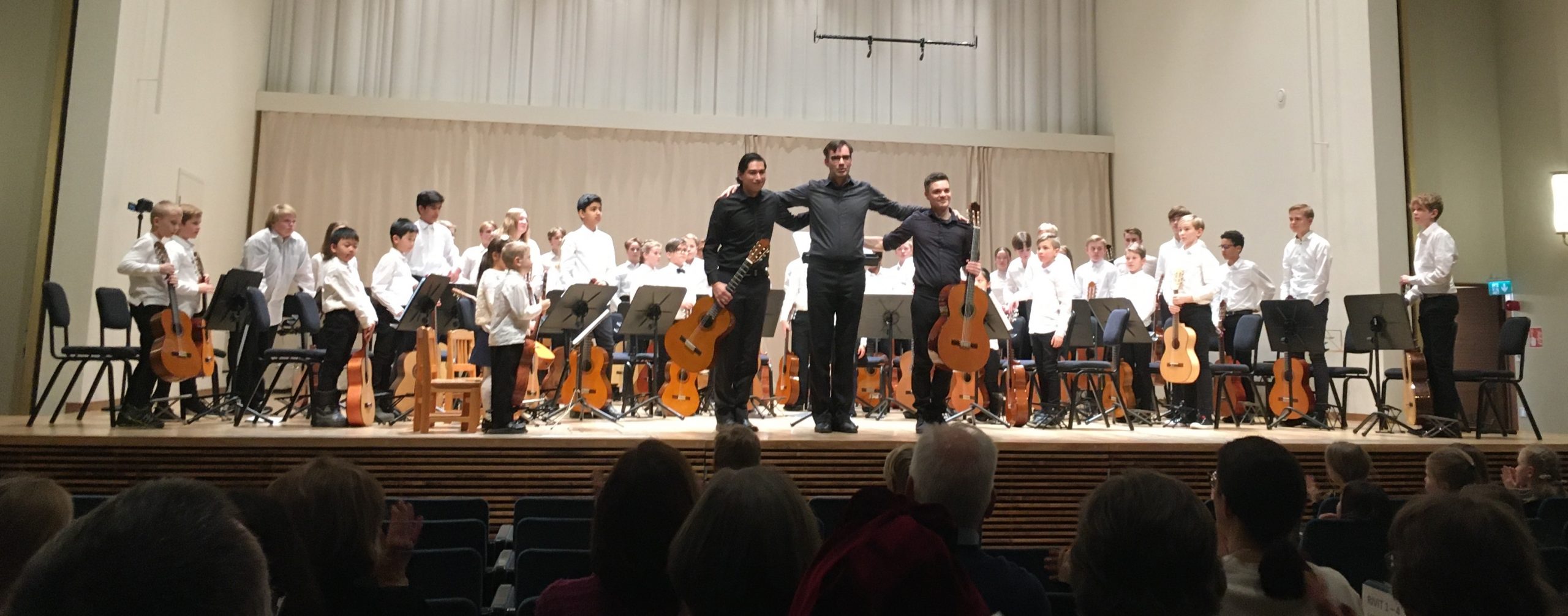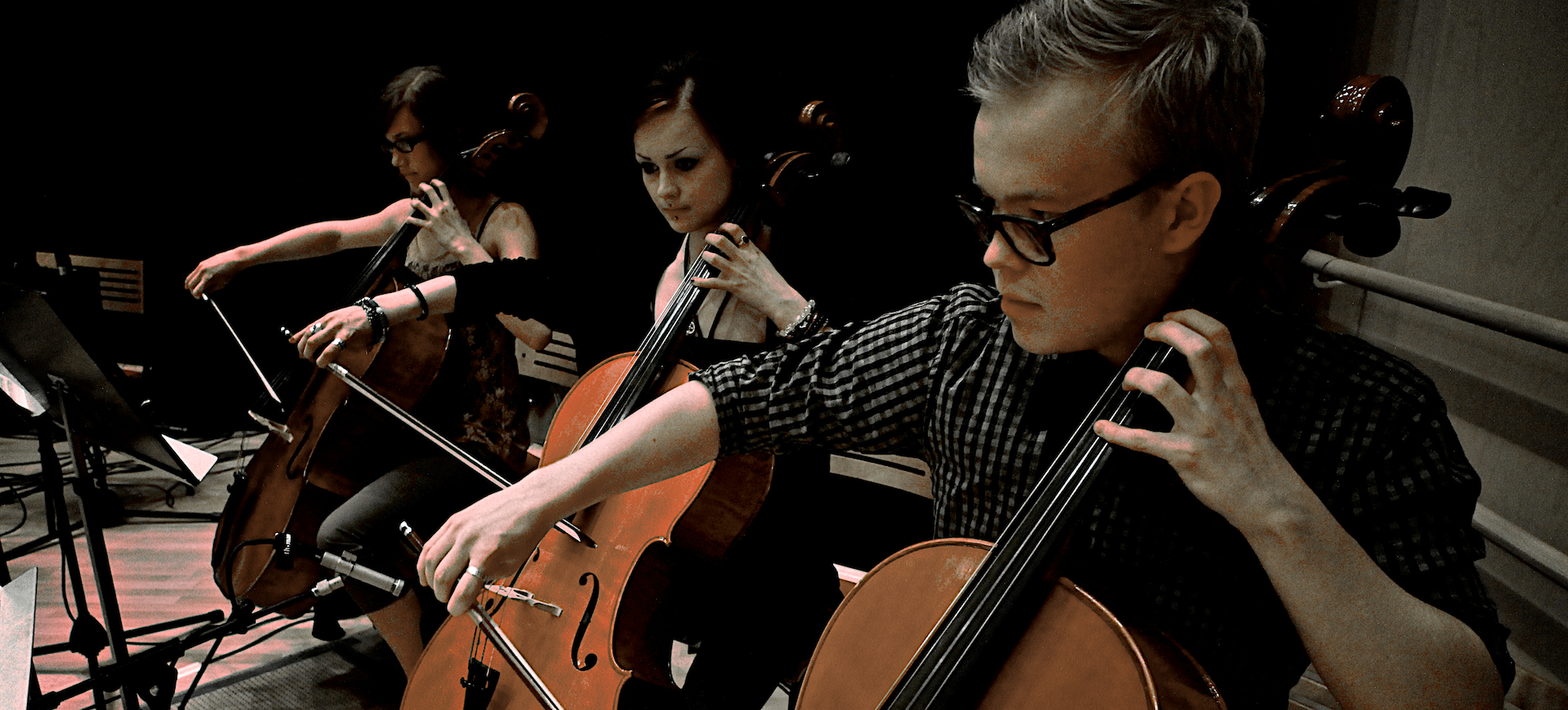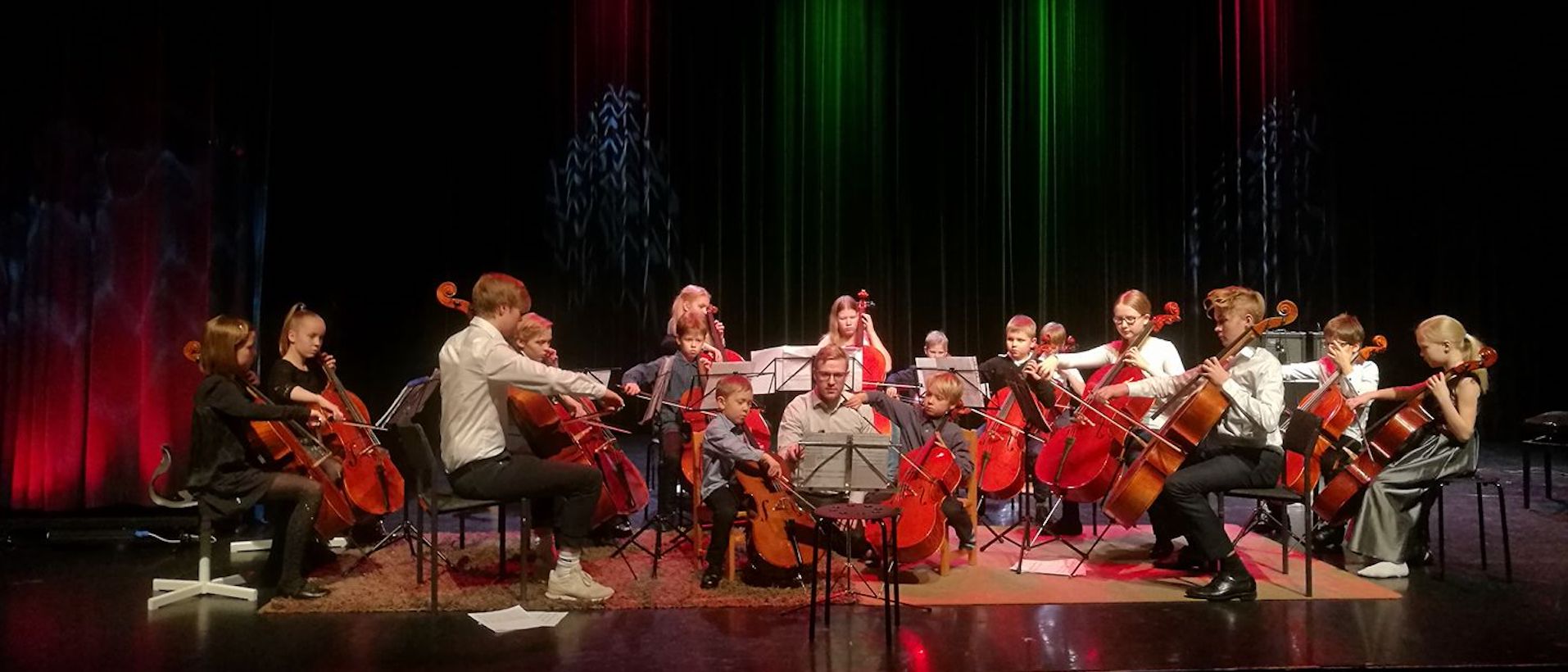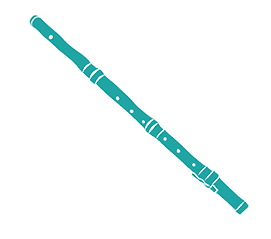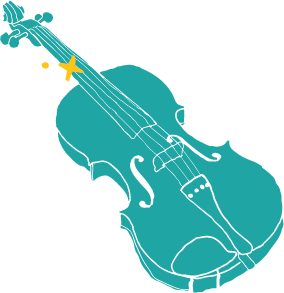
Classical music
Studies include private instrumental lessons, instruction in music theory as well as ensemble playing.
Studies at the Avonia Music Institute are based on an advanced musical syllabus. The studies aim to develop the students’ musical thinking, technical mastery of their main instrument and familiarity with the repertoire – in order to enhance the students’ ability to work independently. Performing is an essential part of studying music.
You may begin playing as a member of a group when you have acquired sufficient skills to practise in a small group or an orchestra. Music theory studies usually begin around the age of 9. They include musical literacy and composition, musical perception as well as knowledge of musical history and styles.
You may choose from a variety of instruments: vocals (classical), piano, guitar, violin, viola, cello, double bass, flute, recorder, clarinet, traverso flute, accordion and kantele.
Eventual minor studies and optional courses are designed to support the students’ musical development and to broaden his/her musical outlook.
Instruments
In the classical department, you may study the following instruments.
Musicianship skills
In musicianship classes the students focus on creative skills, general musicianship, and building a musical identity during their studies. Students work independently and in groups on several composition, ear training, and arranging-related activities. Studies in this subject take place in a computer-based learning environment using relevant applications. This is done to free up a students creative potential from any instrument-specific technical constraints. Students will also work on their improvisation and ensemble skills with their own instrument during these studies.
1. Creativity
- Developing creative skills and encouraging students to compose their own music.
- Composition exercises using MuseScore and Garageband software.
- Encouraging students to explore the world of writing music without constraints.
- Composing pieces for their instrument and performing them in a classroom setting
- Learning elementary composition techniques.
2. Practical musicianship
- Developing practical musicianship and performance skills.
- Encouraging students to participate in practices related to playing by ear regardless of their instrument.
- Learning melodies and chords by ear using Better Ears software and the students’ instruments.
- Writing harmony to a given melody and playing them on the students’ instruments.
3. Improvisation
- Developing improvisation skills without constraints.
- Playing improvised melodies on the students’ instruments on a given harmony or backing track.
- Composing melodies on MuseScore software and using the students’ instruments.
- Group improvisation.
4. General musicianship
- Recognizing and understanding form, structure, instrumentation, melody, and harmony.
- Arranging pieces of the student’s choice for set ensembles.
- Listening to several genres of music.
Groups
- Elementary level A: For elementary level students aged 9-11
- Elementary level B: For elementary level students aged 12-15
- Elementary level C: For elementary level students aged 15 and older
- Advanced studies: For students who have passed the elementary level. Course contents will be designed to meet students’ interests.
Music technology
Studying music technology provides the student with an ability to produce, record, edit and share music in a digital environment.
The main focus for this subject is on notation, digital sound handling, recording as well as editing sound.
After completing the basic studies in music technology, you will master the principles of the equipment used in instruction, as well as understand the common terminology used for the concepts, equipment and work practises within music technology.
Studies in music technology will support your instrumental development, provide you with a readiness to create your own music and to act within the modern field of music.
Music technology studies consist of the following entities:
- Basics of music technology
- Basics of studio work
- Basics of audio systems
After completing the basic studies, you will be able to compose music on a midi based notation application, record different instruments, edit (mix) sounds, create audio files in various forms from existing musical material, transfer and upload audio files to the internet and between computers and audio units.
Basic studies include the basics of studio work and audio systems. You will become familiar with working in a studio. In basics of audio systems, you will learn the basics of sound amplifying and recording a concert. In the classical and rhythm groups, special attention is given to their unique characteristics. Music technology studies are included in the Avonia Music Institute.
Wednesdays 18.15-19.45 at Villa Breidablick
Ensembles
In an ensemble, the musician becomes part of a larger musical entity which adds new and inspiring dimension into your own playing.
Orchestras
The main goal and content of playing in an orchestra is to acquire an understanding of the different sectors of music and to deepen general musical knowledge – by playing music. In addition, a positive and curious attitude towards working and learning in a group is important.
There are three string orchestras and one guitar orchestra at the Avonia Music Institute. Playing in orchestras is included in the term fee.
Choirs
Avonia Music Institute’s children’s choir Ainova rehearsals on mondays at 5 pm (Kannusillanmäki 6). The choir is conducted by Mia Heikkinen, mia.heikkinen@avonia.fi
